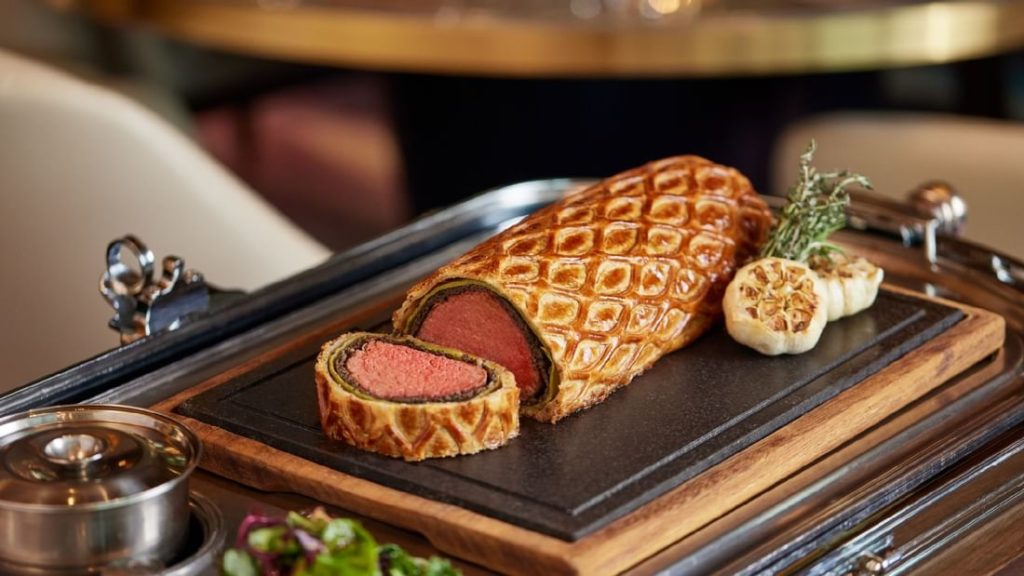Few dishes announce their presence with quite the same theatrical flair as Beef Wellington. Wrapped in golden puff pastry, with finely chopped mushrooms, and sometimes a sliver of pâté or Parma ham, it arrives at the table as a celebration in itself – rich, regal and indulgent. But despite its name, Beef Wellington’s origins are as layered as its pastry crust.
The most widely held theory ties the creation of the dish to Arthur Wellesley, the first Duke of Wellington, victor of Waterloo in 1815 and British Prime Minister during a turbulent age. It is said the dish was created to honour him, possibly inspired by his preference for beef, mushrooms and Madeira wine. Some culinary historians believe its name may have been a patriotic rebranding of the French dish filet de bœuf en croûte during a time when Anglicising French fare was in vogue. Others propose that the resemblance between the finished roast and the Duke’s iconic Wellington boots – high, shiny, and tapered – may have played a role in the moniker.
After enjoying popularity in Victorian Britain, Beef Wellington faded somewhat from view, only to resurface spectacularly in the mid-20th century as the epitome of special occasion cooking. Its rich flavours and impressive appearance made it a darling of hotel menus and holiday feasts, particularly in English-speaking countries. In the 1960s and 70s, no Christmas was complete without it gracing a festive table, gleaming under a savoury egg wash and bearing the intricate lattices of an ambitious home cook.
As culinary trends shifted towards lighter, fresher fare, Beef Wellington adapted. Today, chefs experiment with everything from individual Wellingtons to vegetarian versions filled with beetroot, lentils or wild mushrooms, while the encasing pastry has seen riffs from classic puff to gluten-free alternatives. Even the core ingredient has diversified, with salmon and lamb Wellingtons gaining popularity, especially during springtime Easter menus or in coastal regions where red meat may be less central to the cuisine.
In Cyprus, while Beef Wellington is not a traditional dish, its key elements speak a familiar language. The love of slow-roasted meats, savoury pastries and seasonal herbs echoes the island’s own culinary rhythm. It is easy to imagine a Cypriot twist: beef tenderloin brushed with a glaze of Commandaria and wrapped in a crust infused with oregano and thyme.






Click here to change your cookie preferences